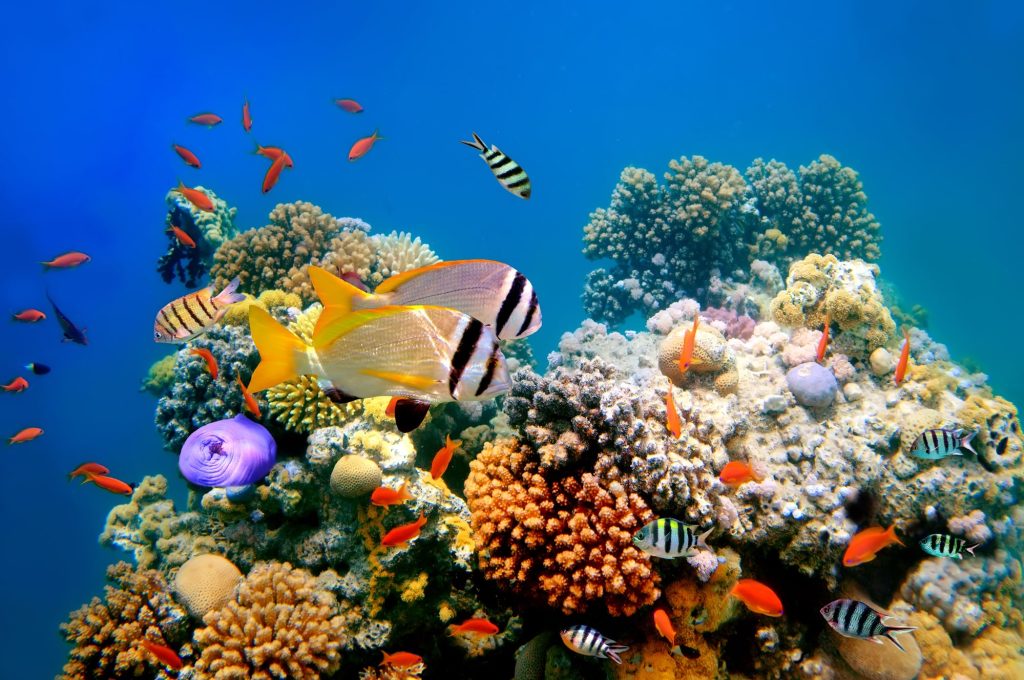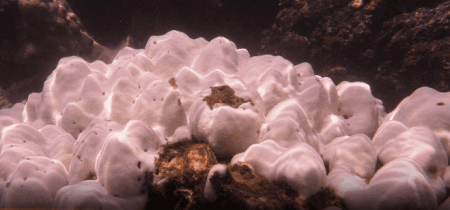The planet’s coral reefs are in trouble. Thanks to warming and acidifying oceans, the animals that make up coral reefs are dying, turning the reefs themselves into algae-covered ghost towns. This represents a loss of habitat for numerous nearby creatures, many of which evolved to only live in the reefs. So the deaths of the corals can lead to the deaths of many other species. From monitoring the reefs by listening to them to local action and working to understand the dynamics of coral illness, scientists and conservationists are taking a lot of approaches to stem the tide. Still, without drastic action on our part, the oceans are going to get warmer—and more coral will die—a predicted three-quarters of the world’s reefs by 2100.
This grim story was illuminated by a ray of hope this week, in the form of a new paper published in the journal Scientific Reports. After years of attempts, Smithsonian Institution researchers in Hawaii have figured out how to cryogenically preserve coral larvae. That means it’s possible to save the genetic diversity of existing coral, perhaps for centuries. The preserved coral larvae can help reseed dead or injured reefs and, as coral research continues to work on the problem of reef death, may someday launch a reef renaissance.
“As reef degradation accelerates, the need for restoration tools has become innovative,” the paper authors write. Although scientists have been able to freeze coral sperm for a while, they need fresh eggs to fertilize—an issue if you’re trying to save a species from going extinct in the wild. A possible solution is freezing coral in their larval stage (they do not have what we’d call an embryonic stage), but “large, multi-celled organisms are usually difficult to freeze,” explains study author Jon Daly. Until now, nobody had successfully cryopreserved and awoken coral larvae, but Daly and his coauthers were able to find the right method to preserve Fungia scutaria larvae and defrost them successfully.
With some experimentation, the paper authors found that freezing coral larvae in the first days of their life cycle using a super-fast method called “vitrification” was successful in cryopreserving larvae who could be awoken with laser warming to swim again.
Among the technical difficulties they faced is the fact that fish embryos and coral larvae are protected from the ocean by “space capsules,” explains coauthor Mary Hagedorn. The same protections that keep them safe from the sea also make them difficult to cryopreserve without giving the tissue what we could colloquially call “freezer burn.” (The problem of freezer burn is one of the many issues faced by the field of human cryonics.)
Usually, the use of cryoprotectants—substances that work with the cells to make freezing without freezer burn possible—helps in the preservation process. But unlike mammalian embryos that are not protected from their mothers’ uteruses, marine embryos are hard to penetrate. By using the right cryoprotectants and relatively undeveloped larvae, the team was able to saturate the baby coral with the protective substance and keep ice crystals from forming during the freezing process.
The size and protection of the embryos is also an issue when it comes time to wake them. If you’ve ever tried to defrost a couple of pounds of ground meat in the microwave, you’ll have a sense of the issues: it doesn’t de-ice uniformly. And you certainly don’t want your precious coral larvae starting to cook around their edges while their centers are still frozen. The team got around this by surrounding the embryos with gold nanorods, which converted a laser’s light into heat and uniformly warmed the larvae.
Comparatively few marine animals are cryopreserved as embryos or larvae—something Hagedorn says needs to change if we want any hope of saving ocean biodiversity. “One of the things that we are really concerned about is our ability to bank this material long-term around the world,” she explains. There’s nothing like the Svalbard Global Seed Vault for marine life, she says—but there should be.
“We need to develop these tools now,” says Hagedorn. It takes a while to learn how to do things like this, she says, but without tools to preserve the living genetic diversity of threatened species, they may go extinct before we have any chance of saving them. Thawing and reintroducing coral larvae to the oceans isn’t exactly de-extinction, since the tissue never died, unlike—for example—efforts to clone the wooly mammoth.
But cryopreservation is just one piece of the puzzle. “This sort of work is designed to go hand-in-hand with adaptations in other areas,” Daly says. Hopefully, advances in other areas of coral preservation will help conservationists make use of coral. “It’s really important to do it now, while there is diversity,” he says. Those other advances might come after that diversity is gone, in the ocean at least.
While the thought that coral reefs are disappearing is a grim one, “this is something that we can do,” Daly says. It’s arguably an investment in the future—even if it’s one that nobody alive today will see. “There’s always a possibility that people hundreds of years from now may want coral reefs back again,” Hagedorn says.









